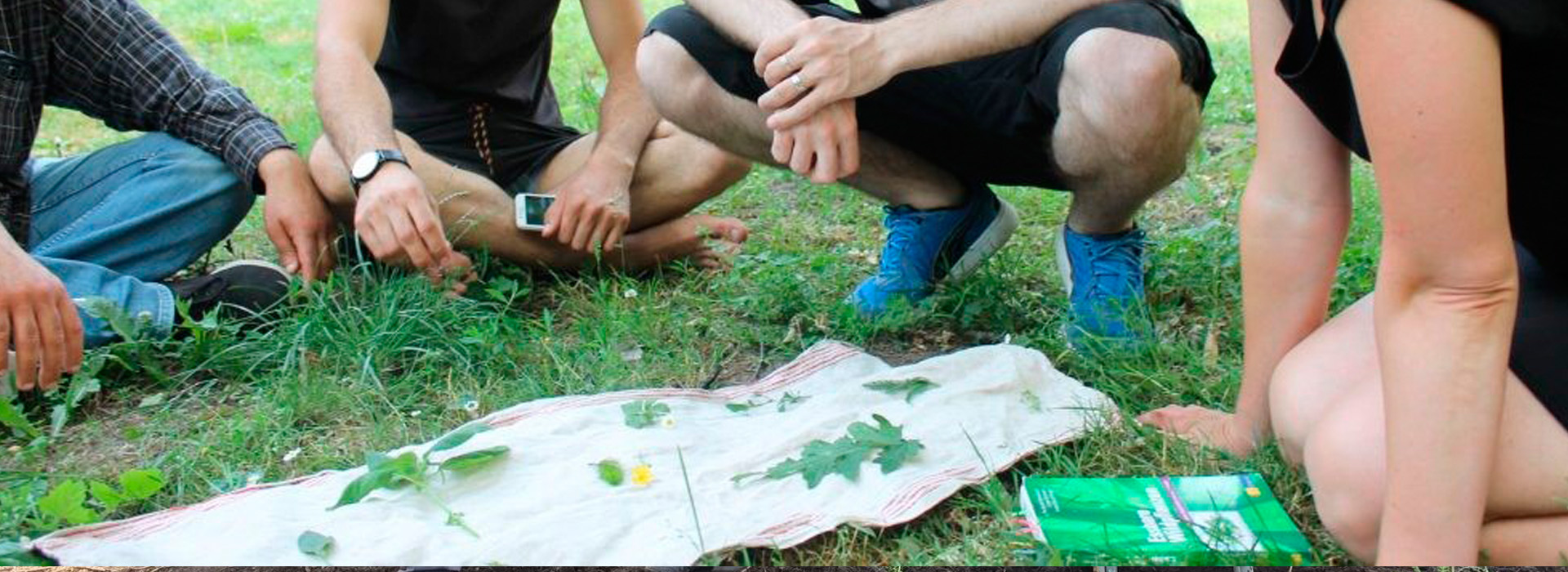All over the UK there are fantastic organisations, often small charities, providing vital support to people seeking a new life in the UK. This might include drop-ins, housing advice, legal advice, integration projects, food banks and many others. Partnering with a refugee organisation can be crucial to making connections with people seeking support and for ongoing advice and support for your project. Some growing spaces offer dedicated sessions for migrants,usually in partnership with a refugee organisation, whilst others invite migrants to attend regular sessions or just to drop in.This handbook highlights the various organisations and support information which you may find useful to support migrants coming to your garden.
General information about UK refugees and asylum seekers:
You must apply for asylum if you want to stay in the UK as a refugee. The definition of an asylum seeker is someone who has arrived in a country and asked for asylum. Until they receive a decision as to whether they are a refugee, they are known as an asylum seeker. In the UK, this means they do not have the same rights as a refugee, or a British citizen would.
To be eligible you must have left your country and be unable to go back because you fear persecution.
You can apply for a visa if you want to come to the UK for another reason (for example to work, study or remain with family). If you’re already in the UK and want to remain with family living here, apply for a family of a settled person visa. You should apply when you arrive in the UK or as soon as you think it would be unsafe for you to return to your own country. Your application is more likely to be denied if you wait.
After you apply you’ll have a meeting with an immigration officer (known as a ‘screening’) and then an asylum interview with a caseworker. You will usually get a decision on your application within 6 months. You can get up to 2 years in prison or must leave the UK if you give false information on your application.
You’ll be told after your screening what you must do while you’re waiting for your asylum decision, for example report to a caseworker regularly (known as ‘reporting meetings’).You must tell the authorities if your situation changes. You will not usually be allowed to work while your asylum claim is being considered.
Housing is provided, but asylum-seekers cannot choose where it is, and it is often ‘hard to let’ properties which Council tenants do not want to live in. Cash support is available, and is currently set at £37.75 per person, per week, which makes it £5.39 a day for food, sanitation and clothing.
When a person is given refugee status, they have just 28 days to find accommodation and apply for mainstream benefits before they are evicted from asylum accommodation. Many refugees become homeless at this stage.
For further information about claiming asylum in the UK please go to: https://www.gov.uk/claim-asylum
Many refugees and asylum seekers share a history of multiple traumas which may display in many different ways and whilst in some people it might not be immediately obvious, it is important to be aware of some of the signs of stress and to have a clear process if you need to support someone.
There is further information about this in the City of Sanctuary Mental Health Resource Pack which can be found here:
https://health.cityofsanctuary.org/wp-content/uploads/sites/47/2017/12/CoS-Mental-Health-Resource-Pack-digital.pdf
Those who claim asylum in the UK are not normally allowed to work whilst their claim is being considered. They are provided with accommodation and support to meet their essential living needs if they would otherwise be destitute. The Home Office may grant permission to work in accordance with this policy to asylum seekers whose claim has been outstanding for more than 12 months through no fault of their own. Those who are allowed to work are restricted to jobs on the shortage occupation list published by the Home Office.
Those who are granted leave have unrestricted access to the labour market. Asylum seekers are encouraged to volunteer whilst their claim is being considered. Volunteering involves spending time, unpaid, doing something that aims to benefit the environment or someone (individuals or groups). By volunteering for a charity or public sector organisation, asylumseekers can support their local community, and this will also assist with their integration if they are granted leave to remain in the UK.
The Home Office offers advice on working:
The Refugee Council works directly with thousands of refugees each year. They provide crisis advice and practical support, help people to integrate into their new communities and offer mental health counselling to help them come to terms with the trauma so many of them have experienced.
They are the only national organisation providing support to refugee children and young people who arrive in the UK alone.
The Refugee Council offer relevant, practical and up-to-date training for people working with asylum seekers and refugees in the UK: https://www.refugeecouncil.org.uk/latest/training-events/
Some universities and higher education colleges consider asylum seekers to be international students who must pay overseas fees. However, asylum seekers can't usually get student support until the Home Office has made a decision on their application.
People seeking asylum in the UK are excluded from claiming mainstream welfare benefits and in most cases from working. Section 95 support is aimed at asylum seekers whose claims are ongoing, who are destitute or about to become destitute, and their dependents.
Migrant, refugee and asylum seeking women and girls are a diverse group as regardsnationality, age, legal and social status, professional and personal situation and characteristics, as well as the reasons why they leave their countries of origin. There are a number of organisations set up to support women and girls in the UK.
Social Farms & Gardens is a UK wide charity supporting communities to farm, garden and grow together.
Our vision - people and communities reaching their full potential through nature-based activities as a part of everyday life.
Our mission - to improve the health and wellbeing of individuals, communities and the environment through nature-based activities.
For many people arriving to seek asylum in the UK, community growing spaces can offer vital and unique opportunities to find community, improve mental and physical health and to learn and share skills. These resources have been designed to encourage and support community growing groups to welcome people seeking sanctuary.
Social Farms & Gardens and City of Sanctuary are working together to support and inspire some of the thousands of community growing spaces in the UK to become places of sanctuary for people forced to flee from persecution.
https://gardens.cityofsanctuary.org/case-studies
https://www.farmgarden.org.uk/sites/farmgarden.org.uk/files/gos-report-final.pdf

 English
English  Deutsch
Deutsch  Español
Español  Svenska
Svenska 